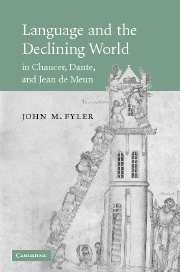1 - The Biblical history of language
Published online by Cambridge University Press: 13 January 2010
Summary
Ferdinand de Saussure and the structuralists, by making language the paradigm for large areas of inquiry, almost inevitably provoked a new interest in an age-old question: how, when, and where did language originate? This question elicited responses throughout the Middle Ages and Renaissance – indeed, to the end of the eighteenth century, as the famous discussions by Rousseau and Herder attest. From the late seventeenth century on, however, the responses became increasingly speculative, largely because Genesis lost its status as the infallibly authoritative account of early human history. No longer restricted by a unitary Biblical truth, linguistic speculations could increase and multiply, mixing the plausible with the implausible. To defend against the deluge, the inaugural bylaws of the Société de linguistique de Paris (1865) stipulated that no papers of any sort concerning the origin of language would be accepted. Now that the question has regained some of its former popularity, we may sympathize with the Society's position.
Yet resuscitating this question has brought some earlier views into sharp focus and given them new interest. When we consider patristic and medieval comments on the origin of language, two things are immediately apparent. First, discussion focuses inevitably on the opening eleven chapters of Genesis, from the Creation to the Tower of Babel; second, Augustine's extensive comments on language dominate and provide the framework for later commentary. In Neil Forsyth's synopsis, Augustine's “system of symbolic interpretation” comes of age in De Doctrina Christiana, where he describes the effects on language of the Fall.
- Type
- Chapter
- Information
- Publisher: Cambridge University PressPrint publication year: 2007

